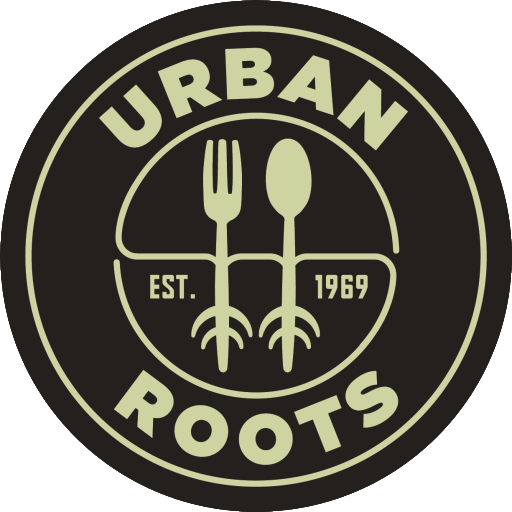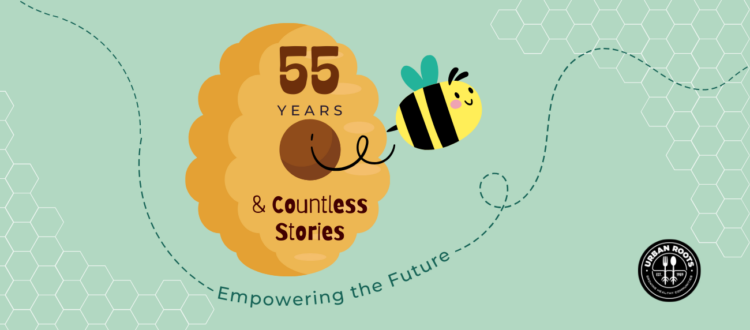Lindsey’s Story
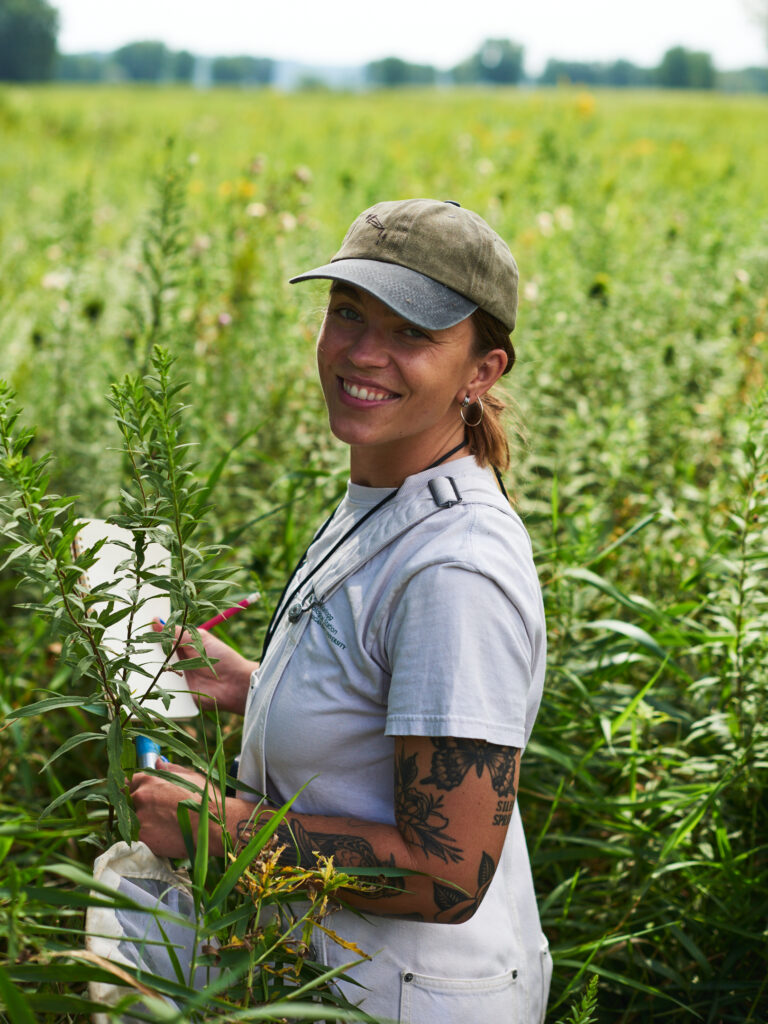
Lindsey Kemmerling, PhD, Postdoctoral Researcher, MSP LTER/Snell-Rood Lab Dept. Ecology, Evolution, and Behavior University of Minnesota
I am a researcher with the Minneapolis-St. Paul Long Term Ecological Research Program (MSP LTER). My research team and Urban Roots have worked together since 2022 to add ecological research opportunities to their youth internship programs and to conduct collaborative ecological research projects.
Science Deep Dive Program
I lead the Science Deep Dive with Urban Roots; this program partners university researchers with Urban Roots interns to introduce hands-on research experiences, identify pathways to pursue careers in science, and dive deep into the ecology of the Twin Cities. We’ve measured plastic pollution in ponds in the Twin Cities, tested the growth of radishes across soil and compost types in Urban Roots sites, and scouted for jumping worms (a new displaced species spreading through the Twin Cities) with a worm expert. Some Science Deep Dive interns have presented their research at the University of Minnesota’s Earth Student Research Symposium and another intern completed their senior capstone project through the program. The interns are incredibly engaged, enthusiastic, and intelligent, especially when it comes to insects and worms!
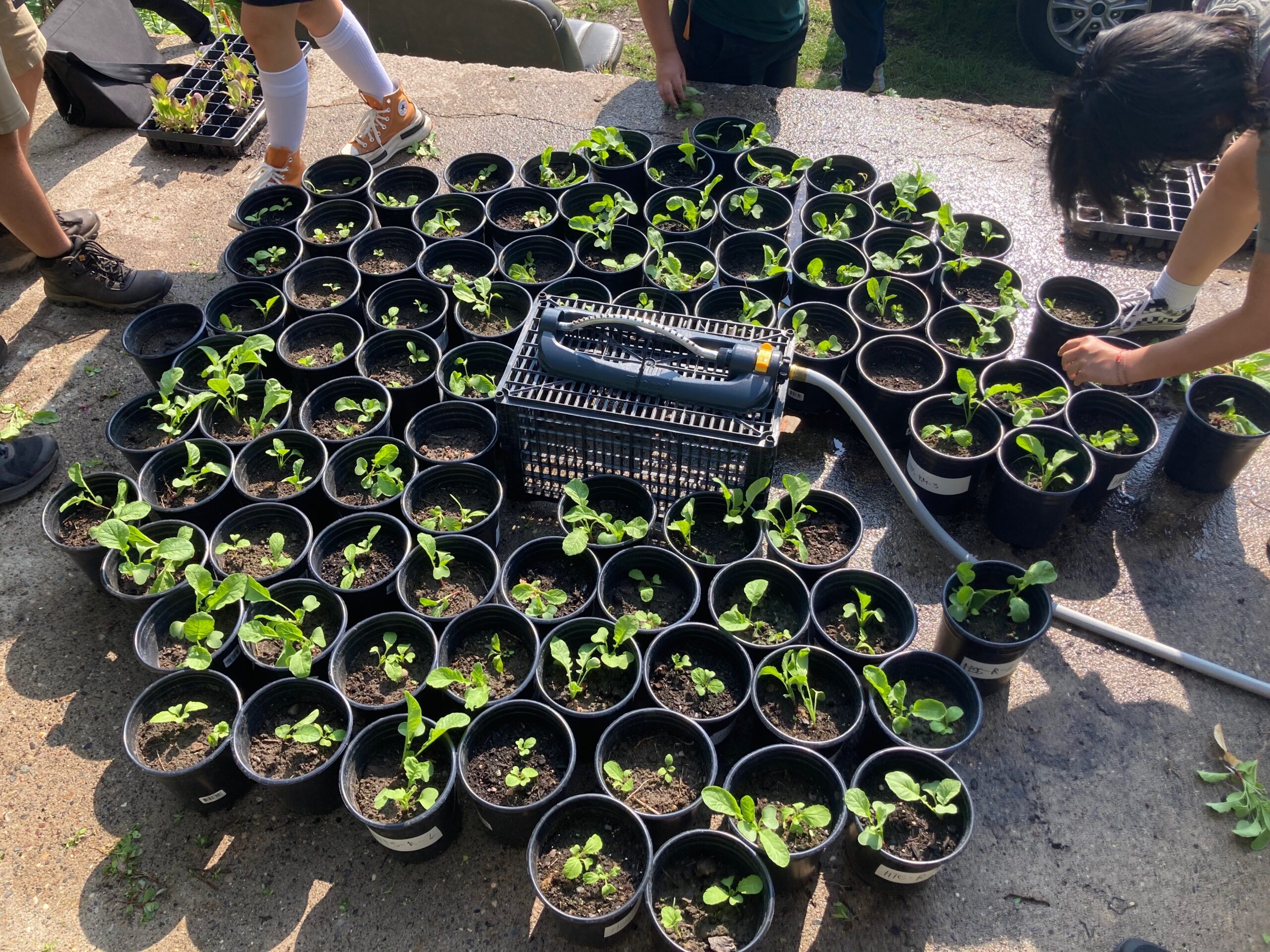
The great radish experiment!
The interns are incredibly engaged, enthusiastic, and intelligent, especially when it comes to insects and worms!
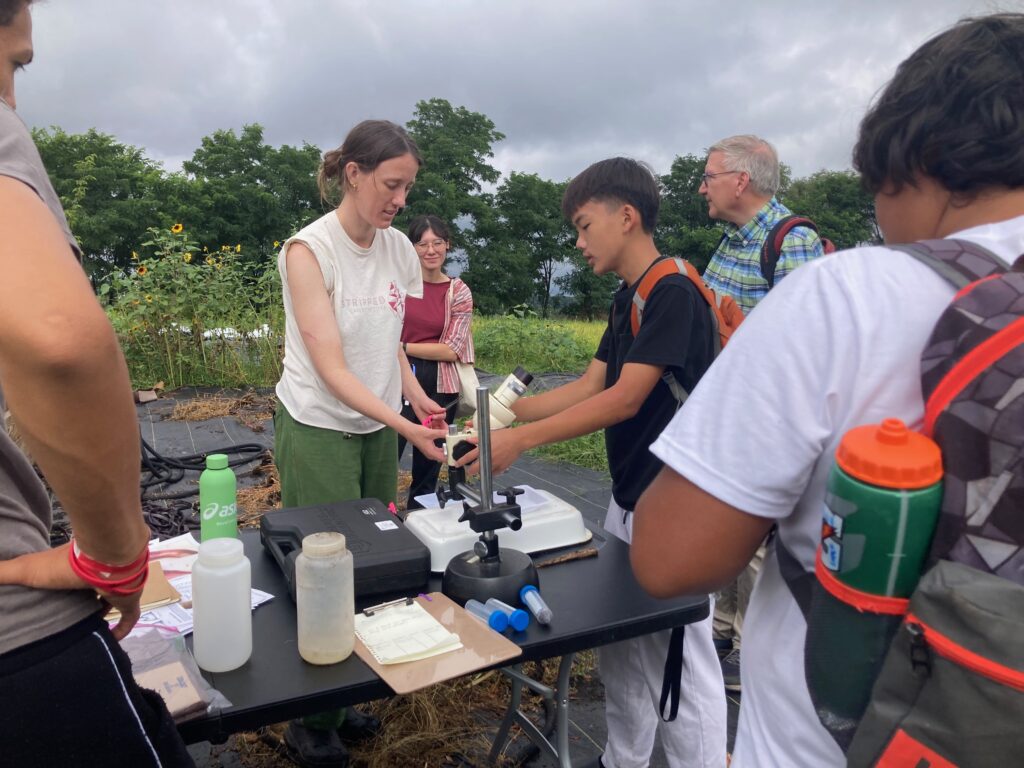
Looking at organisms under a microscope at the Rivoli Bluffs Farm Site with Urban Roots Interns and other volunteers.
(Photo taken by Lindsey)
Collaborative Research
My research team and Urban Roots have recently acquired large research grants to implement collaborative projects at their sites. Our most recent project is testing the ability of biochar to remediate microplastics from soils. Biochar is made from slowly burning wood to produce charcoal through a low-carbon emissions process. The Urban Roots Conservation crew removes buckthorn (a displaced species which is degrading local forests) from greenspaces in St. Paul. This harvested buckthorn can then be burned into biochar and added to soils with two potential benefits: (1) enriching soil in ways that can increase agricultural productivity, and (2) preventing the uptake of heavy metals and microplastics in the soil. We are testing this process in an experiment at an Urban Roots farm with the help of Science Deep Dive interns.
See this short video for another look at our work together!

Lindsey (fourth from the right) with Urban Roots interns visiting the University of Minnesota.
(photo credit: Emilie Snell-Rood)
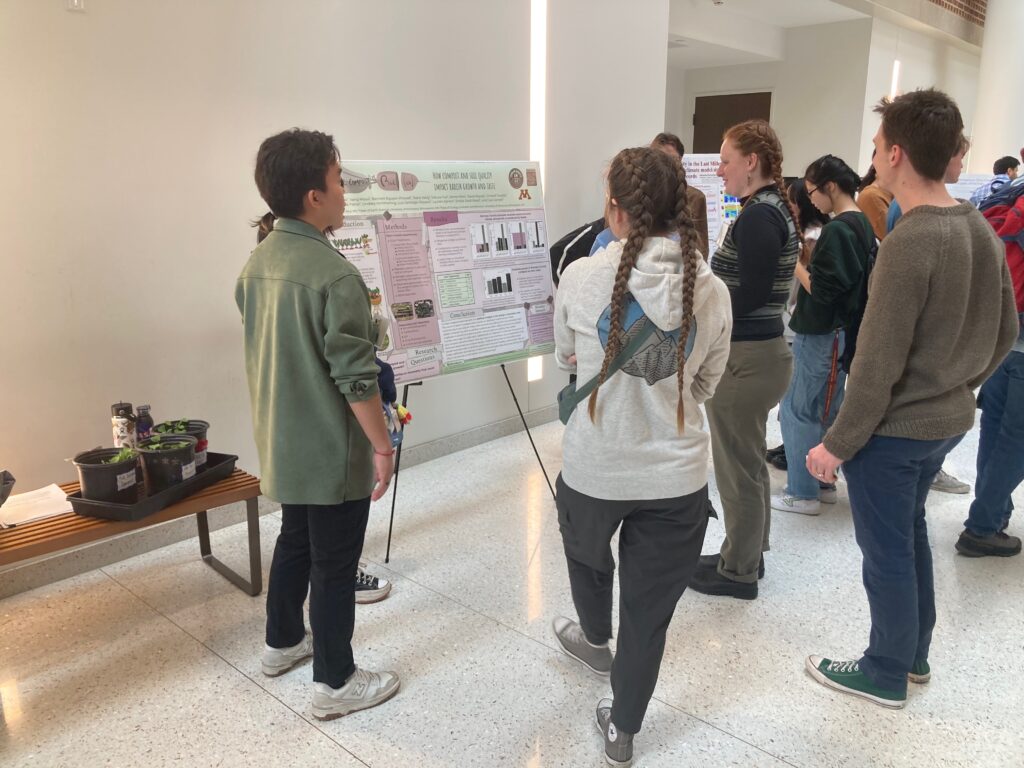
Interns learning from students research projects at the University of Minnesota.
What’s the most valuable seed that you and Urban Roots have planted, grown, and harvested, in yourself or our community?
Together, we have planted, grown, and harvested seeds of curiosity. Our partnership aims to ask and consider meaningful questions, work to understand them, and do so again.
-Lindsey Kemmerling, PhD, Postdoctoral Researcher, MSP LTER/Snell-Rood Lab Dept. Ecology, Evolution, and Behavior University of Minnesota
